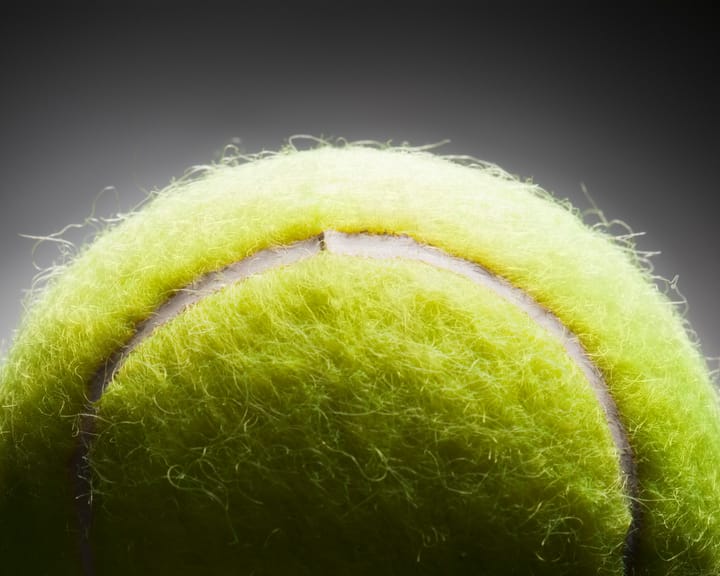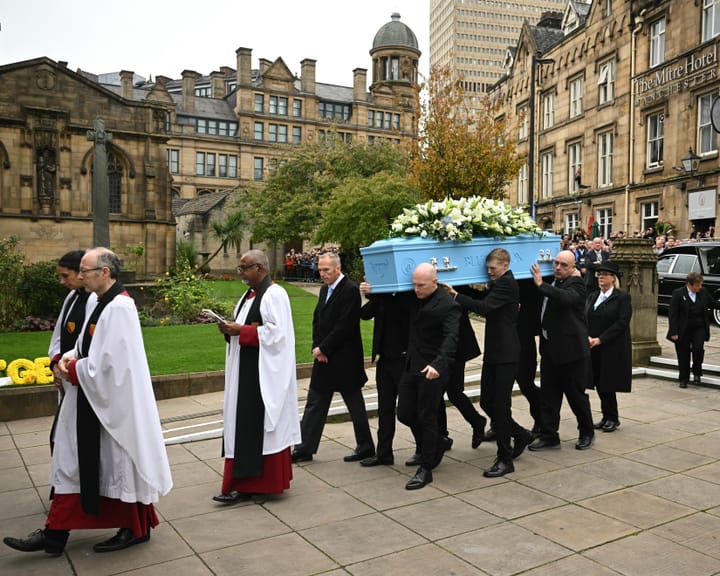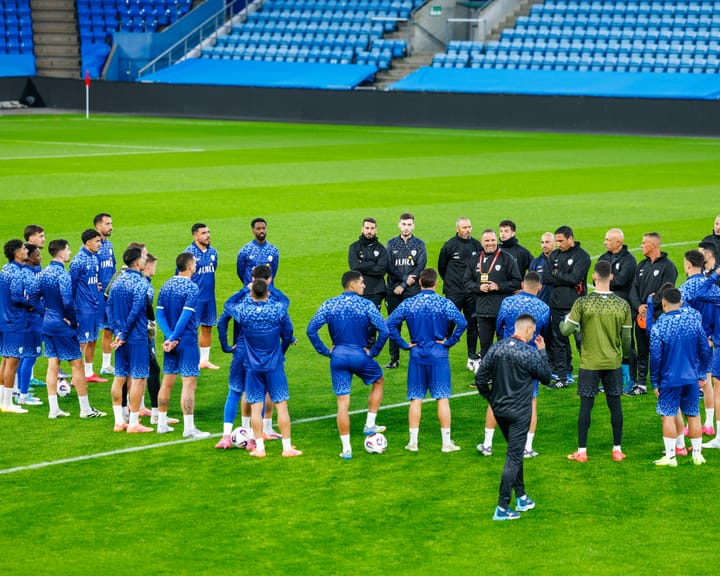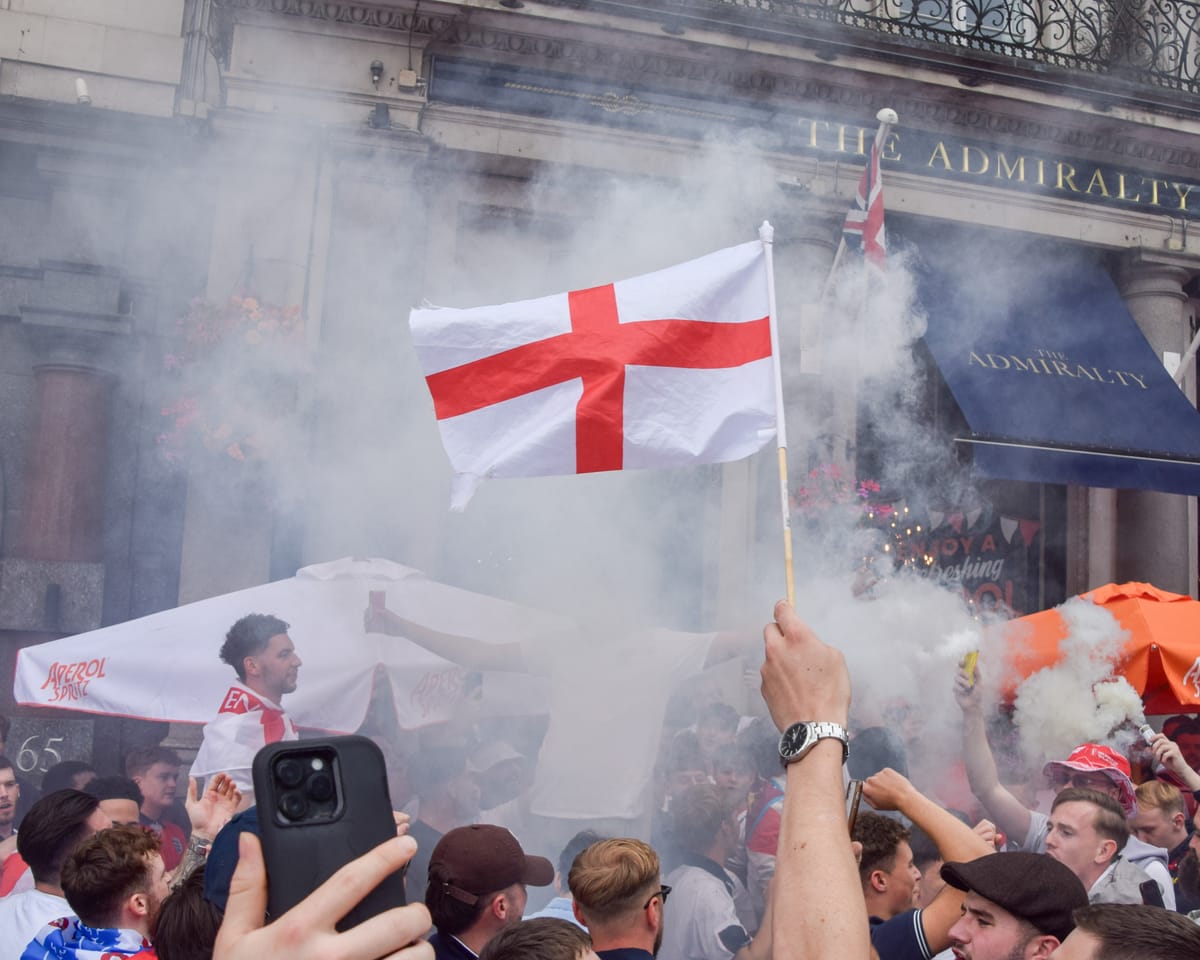The St. George’s crosses are visible everywhere. The opening line of Three Lions ’98 carries a different weight today. In Basildon, the flag has been painted on an Islamic center. In York, it was used to vandalize a Chinese restaurant. Elsewhere, men draped in the flag shout from a roundabout near a hotel. Online, the flag sells for around £2.36, with options for car-window sizes or larger versions, some bearing bold slogans.
Keir Starmer has stated he is "a supporter of flags," though his views on other textiles remain unconfirmed. Blankets? Dishcloths? No clarity yet. Not to be outdone, Home Secretary Yvette Cooper revealed she displays St. George’s bunting at home, adding, "I would put them up anywhere"—an unfortunate mental image best avoided.
The recent surge in flag displays is, of course, a thinly veiled tactic from the far-right, using patriotism to smuggle divisive politics into public spaces. It’s just a flag—why overthink it? critics ask. Yet these displays often happen at night, hardly a traditional time for expressions of national unity.
Amid this tangled debate over symbols and meanings, England’s national team, under Thomas Tuchel, prepares for matches against Andorra and Serbia, regrouping after a disappointing summer.
Sporting questions remain—can Elliot Anderson secure a midfield role? Can Tuchel find a sharper approach against defensive teams? Yet beyond tactics, this is a notable moment for the team, stepping onto the field under a flag loaded with history and interpretation.
Football, particularly in England, often sidesteps these discussions, prioritizing tradition and commercial interests. The usual clichés prevail: honor to represent, play for the badge, thought it was a prank call.
Tuchel, for his part, is indifferent to identity and nationalism debates. At his introduction, he clarified, “I’m a head coach, not a manager,” distancing himself from the broader cultural discourse.
Read next

"Fluffed Up: How Modern Tennis Balls Lead to Frustration and Injury"
Daniil Medvedev quickly realized he was in a difficult position at Roland Garros. Facing Britain’s Cameron Norrie in the opening round, he struggled to find his rhythm.
With his chances of progressing in one of the sport’s most prestigious events slipping away, the 29-year-old decided on an unusual

Manchester bids heartfelt farewell to beloved boxer Ricky 'the people's champion' Hatton
Thousands Gather in Manchester to Honor Ricky Hatton, Former World Champion Boxer
A large crowd filled the streets of Manchester on Friday to celebrate the life of Ricky Hatton, the former world champion boxer who passed away last month at the age of 46.
Hatton was widely admired in the

Heightened security and political strain loom over crucial Norway vs. Israel World Cup match
This will be the most heavily secured sports event in Norway since the 1994 Winter Olympics. Strict security measures are in place across Oslo, with a no-fly zone enforced over Ullevål Stadium. Amid the heightened precautions, it might be easy to overlook that Norway’s national team is close to

